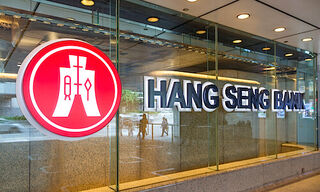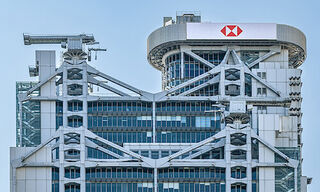Swiss banks face a particular conundrum after the U.K. voted to leave the European Union: they have set up expansive operations in London for a valuable «passport» into the EU. What now?
Both Credit Suisse and UBS employ thousands of people in Britain, mainly in London. Because Switzerland has never had access to the single market, major Swiss banks have built up major London operations as a way of «passporting» their products into the European Union – and the single market.
Foreign exchange trading, interbank services, and fund management are three examples of businesses that UBS and Credit Suisse can sell to EU clients thanks to a U.K.-based passport. Thousands of investment bankers and asset management specialists now face the prospect of losing their London jobs, or moving out of the U.K.
Multi-Year Process
Credit Suisse was quick to assure employees that absolutely nothing happens to its offices and staff in Canary Wharf, London following the vote – at least immediately.
«The result of the U.K. vote does not lead to any automatic changes in the U.K.’s legal relationship with the EU, and there are no immediate legal implications for Credit Suisse’s U.K. clients or employees,» the bank said in a statement.
Credit Suisse moved its business with hedge funds to Dublin from London six months ago, a move more to do with escaping London's high costs than with the threat of Brexit.
Costly Move Back In
Further out, both banks face the costly task of moving thousands of people back into the EU in order to win back the right to passport its products into the bloc.
UBS employs 5,435 people in the U.K., and Credit Suisse roughly 6,600 – a number that the bank is currently cutting as part of a major restructuring under Chief Executive Tidjane Thiam.
«We are committed to servicing our clients and working with regulators and governments to ensure an orderly transition to any future potential U.K./EU financial services market access agreement,» Credit Suisse said.
UBS echoed the sentiment: «We are now at the start of a multi-year process and we will approach this in the same way we would in our home market,» UBS said.
Swiss Deja-Vu
Details are sketchy thus far, but Britain can expect to be frozen out of the single market following the vote. For Credit Suisse and UBS, this process represents a deja-vu: Switzerland never had an EU passport, and existing outposts in London were a logical choice in order to gain access to the bloc for funds and capital market products.
For smaller Swiss banks which distribute in Europe, London has never been as attractive as other European centers. Julius Baer said its European center is Frankfurt, while Vontobel, which sells mutual funds and structured products into the EU, has declared Munich as its Europe hub.
Sanguine On Popular Votes
Britain's decision on whether to exit the European Union comes as Switzerland attempts to negotiate access to the single market for Swiss firms.
«The future will show, in what way and to what extent the U.K. and Switzerland have common interests in these discussions,» Switzerland's banking lobby said in a statement.
The comments highlight how Swiss business no longer gets its way in politics anymore – and more often that not, has to cede ground to voters on business issues like immigration.
After landmark votes in Switzerland to cap executive pay and limit immigration, Swiss firms have grown accustomed to being nimble given popular votes.
«As a Swiss organization, we're used to preparing our business for change in line with the democratic will of the public,» UBS said.


























